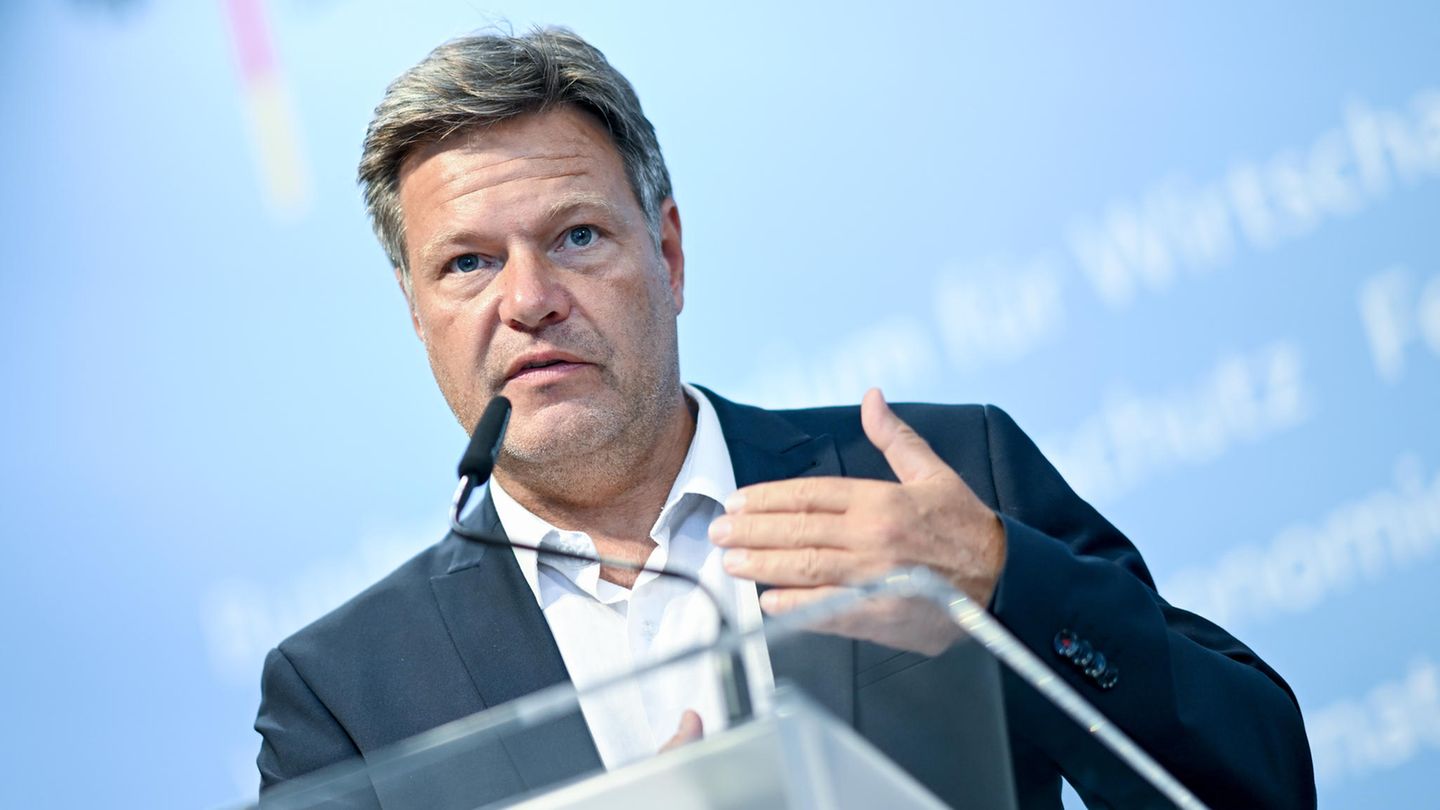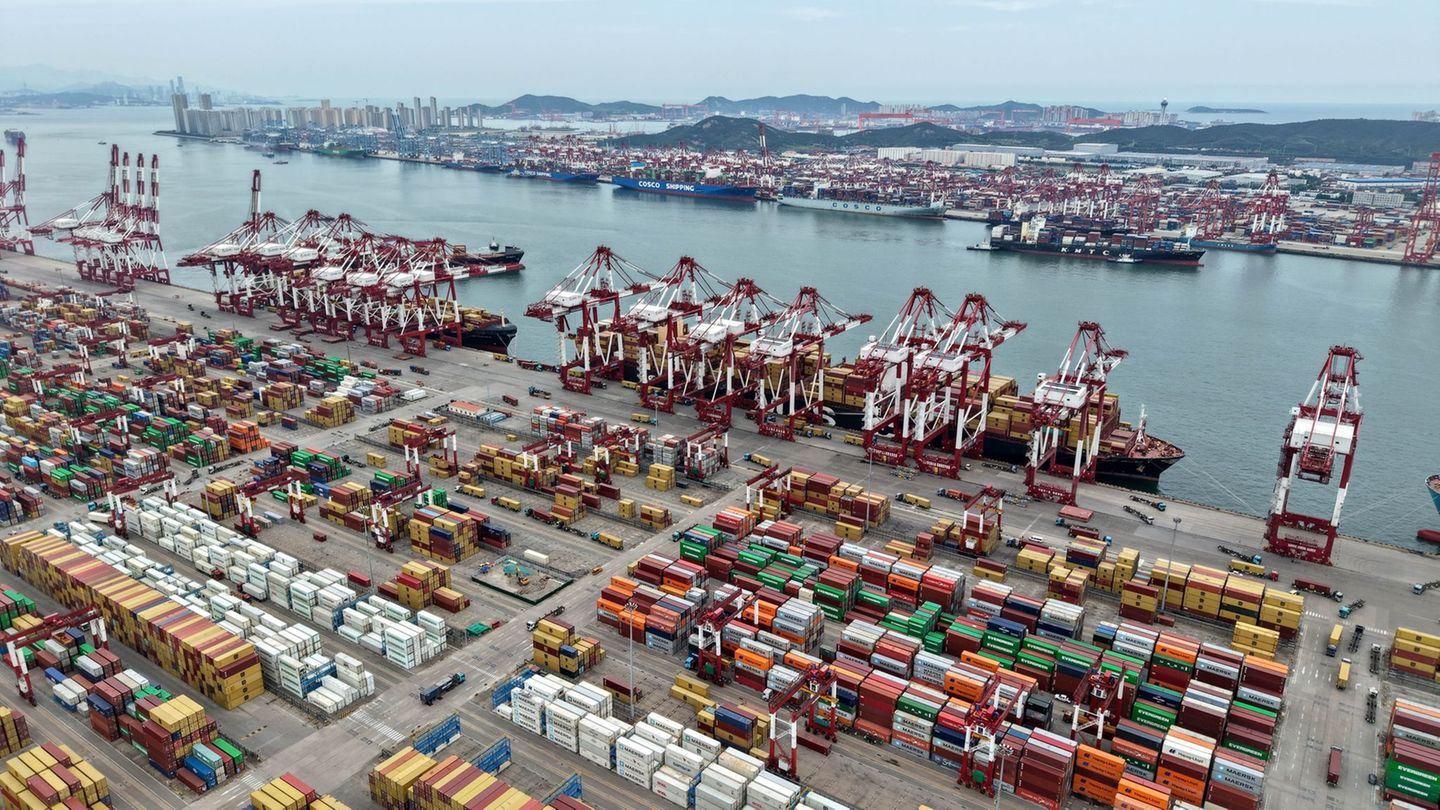The planned gas allocation was controversial from the start. Rich companies should not benefit from the measure, says Vice Chancellor Robert Habeck. The liberal coalition partner calls for a correction – by Tuesday.
Federal Minister of Economics Robert Habeck has promised a change in the planned gas levy. The correction is intended to prevent companies that do not need it from an economic point of view from benefiting from this levy on private households and industry. “That’s why you have to work hard on the problem now, and we do that too,” said the Green politician on Sunday evening on ZDF’s “heute journal”. “We will solve this problem.” The FDP demands corrections until the government meeting this Tuesday. SPD party leader Lars Klingbeil is also pushing for corrections to the controversial gas levy.
The surcharge is intended to compensate for the sharp rise in costs for large importers due to the shortage of Russian gas supplies in order to protect them from bankruptcy and the energy system from collapsing. All gas customers should pay an additional 2.4 cents per kilowatt hour from October. It is criticized that companies that are doing well economically could also benefit. That is why the federal government is now examining corrections. However, this is considered to be legally complicated.
According to Habeck, the challenge is to ensure the supply of gas to the population and companies, “and that was in danger.” Direct state aid to ailing companies is not a solution. “Permanent financing by the state is not a business model, and that’s why we had to choose this levy,” he said. “We have to see that these companies, which actually don’t need access to this levy, don’t get it either.” SPD leader Klingbeil had accused Habeck of technical errors and called for a policy with substance instead of “nice words”.
He spoke on Monday in the ZDF morning magazine about undesirable developments. The gas surcharge was justified to avert insolvencies in the energy supply, and that was correct. “But now we see that companies that make billions in profits are applying for this gas surcharge.” That was “indecent free riding,” criticized Klingbeil.
Gas storage tanks continue to fill up
FDP parliamentary group leader Christian Dürr demanded that technical errors should be eliminated before the cabinet meeting. “We have to be careful that state intervention does not make the energy crisis worse,” he said “Bild” (Monday). The gas levy should under no circumstances lead to extra returns for companies. The SPD MP Ralf told the newspaper: “The retreat in Meseberg is the right place and the right time to renegotiate the gas levy.”
There are signs of further slight easing in the provision for autumn and winter: the filling level of the German natural gas storage facilities is approaching the 85 percent mark despite significantly reduced delivery volumes from Russia. As emerged on Monday from data from European gas storage operators, a filling level of 82.74 percent was expected for last Saturday. “The memory fills up faster than specified,” Habeck told the “Spiegel”. He assumes that the targets will be reached much earlier. From the Ministry’s point of view, the October storage target of 85 percent should already be achieved by the beginning of September.
A regulation stipulates that the German storage tanks must be at least 85 percent full by October 1st. On November 1st it should be at least 95 percent. The storage facilities compensate for fluctuations in gas consumption and thus form a kind of buffer system for the gas market. The fill level is always reported with a delay.
Source: Stern
David William is a talented author who has made a name for himself in the world of writing. He is a professional author who writes on a wide range of topics, from general interest to opinion news. David is currently working as a writer at 24 hours worlds where he brings his unique perspective and in-depth research to his articles, making them both informative and engaging.




